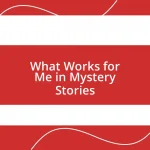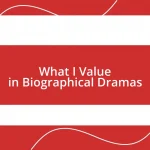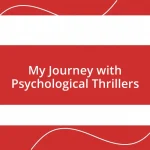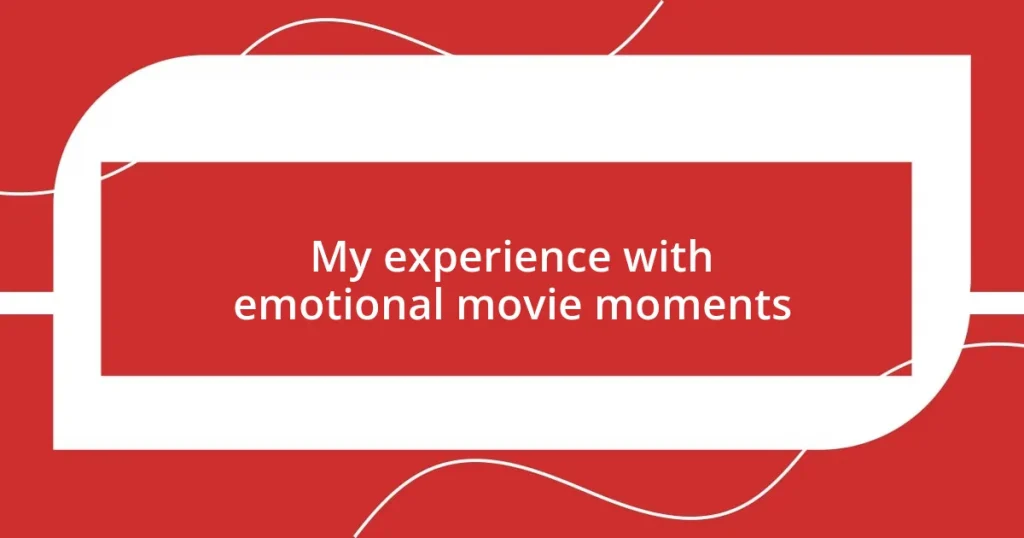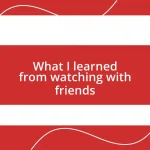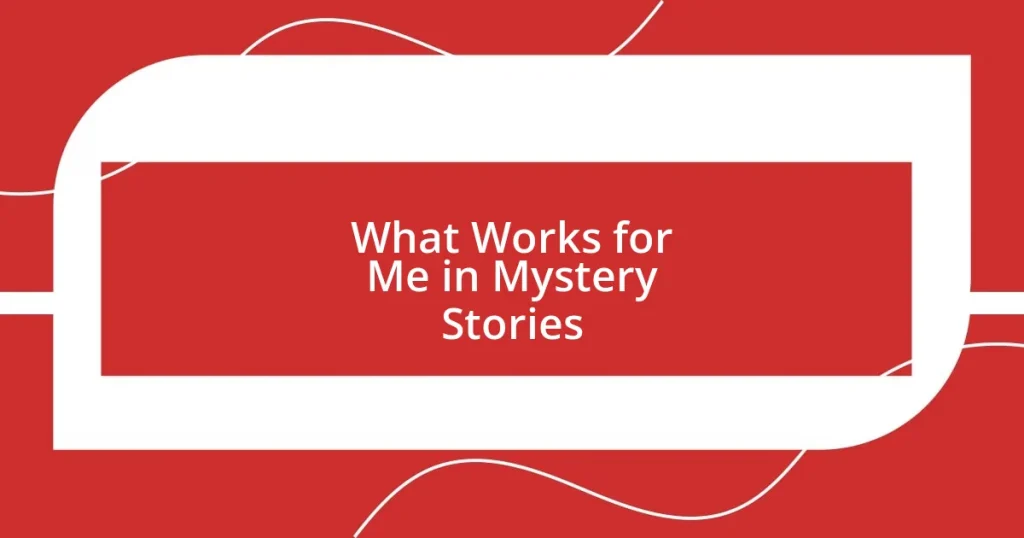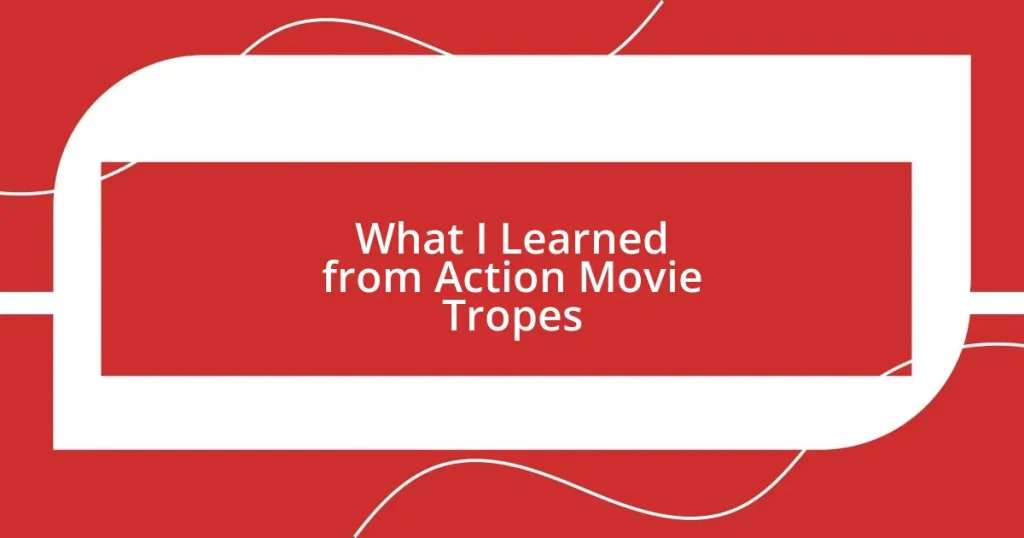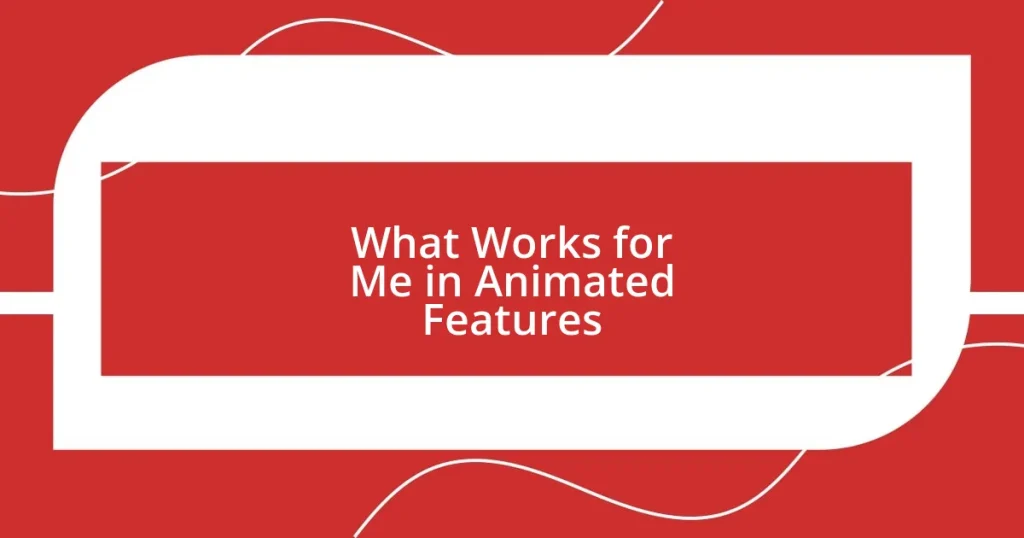Key takeaways:
- Emotional movie moments resonate deeply, often reflecting the audience’s personal experiences and emotions.
- Storytelling techniques, such as relatable characters and powerful dialogues, enhance the emotional impact of films.
- Cinematic elements like music, lighting, and visuals play a crucial role in evoking strong emotions in viewers.
- Creating a conducive viewing atmosphere and connecting with characters can enrich the emotional experience of watching films.
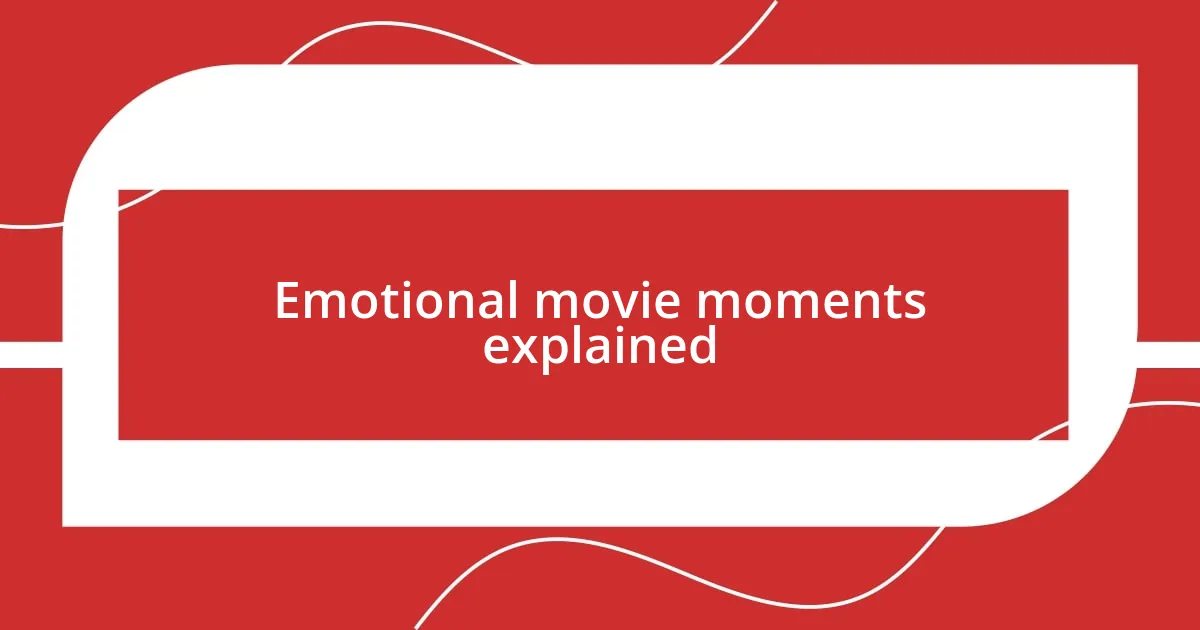
Emotional movie moments explained
Emotional movie moments are powerful scenes designed to evoke deep feelings, often striking a chord with the audience’s personal experiences. I still remember sitting in the theater during the climax of The Pursuit of Happyness. The moment when Chris Gardner finally secures that job had me fighting back tears. Why does that particular moment resonate so deeply with us?
When characters experience loss, love, or triumph, we can’t help but reflect on our own lives. I recall watching Atonement and feeling overwhelming sadness for the characters, which made me think about the impact of misunderstanding in my relationships. Why do some films capture the essence of our struggles so perfectly? It’s almost as if they provide a mirror, allowing us to confront and process our emotions.
These moments often hinge on relatable themes, pulling us into the narrative and making us feel connected with the characters. I can’t help but recall the gut-wrenching scene in Marley & Me, where the bond between the main character and his dog culminates in farewell. Do you ever wonder how filmmakers craft these scenes to leave a lasting impression? It’s a delicate dance of storytelling and emotion that turns a simple moment into an unforgettable experience.
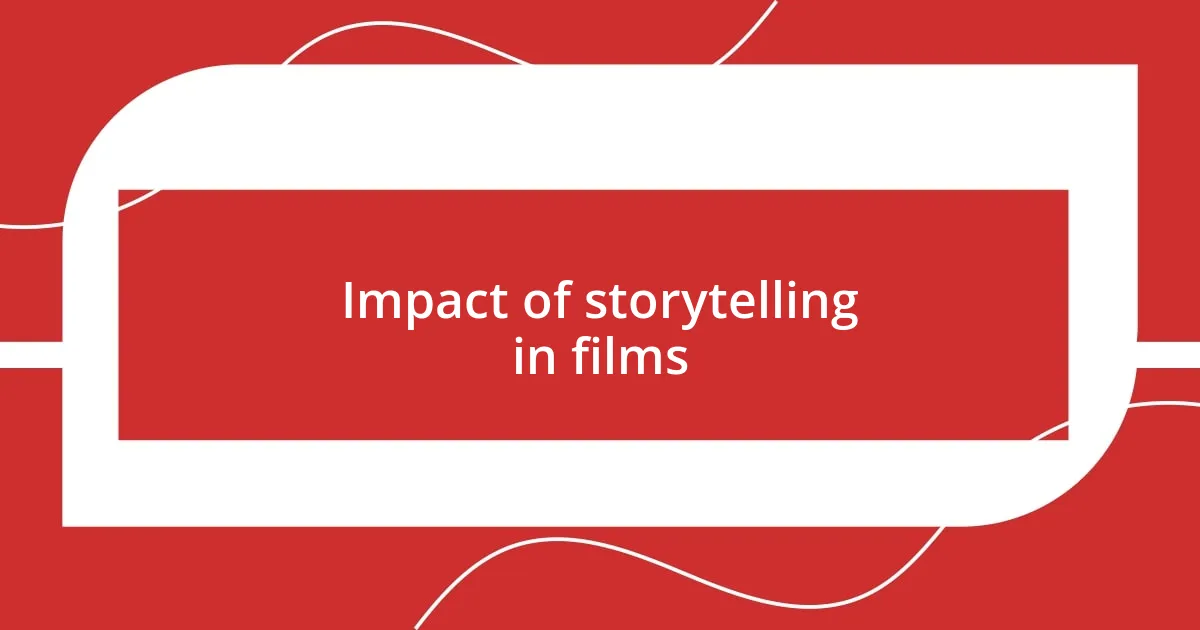
Impact of storytelling in films
Storytelling in films is a profound tool that shapes our emotional experiences. When a narrative is well-crafted, it transcends mere entertainment and resonates with our innermost feelings. I recall watching The Green Mile, where the story of John Coffey’s tragic yet hopeful journey left me in a state of reflection. That film taught me about injustice and empathy, feelings that lingered long after the credits rolled.
- Relatable characters help us see ourselves, making their struggles our own.
- Vivid storytelling can evoke memories, prompting us to connect our past emotions with the film’s narrative.
- Powerful dialogues often encapsulate complex feelings in a single phrase, resonating deeply with viewers.
This blend of storytelling and emotional depth often cements those moments in our hearts, reminding us of the power films have over our perceptions and feelings.
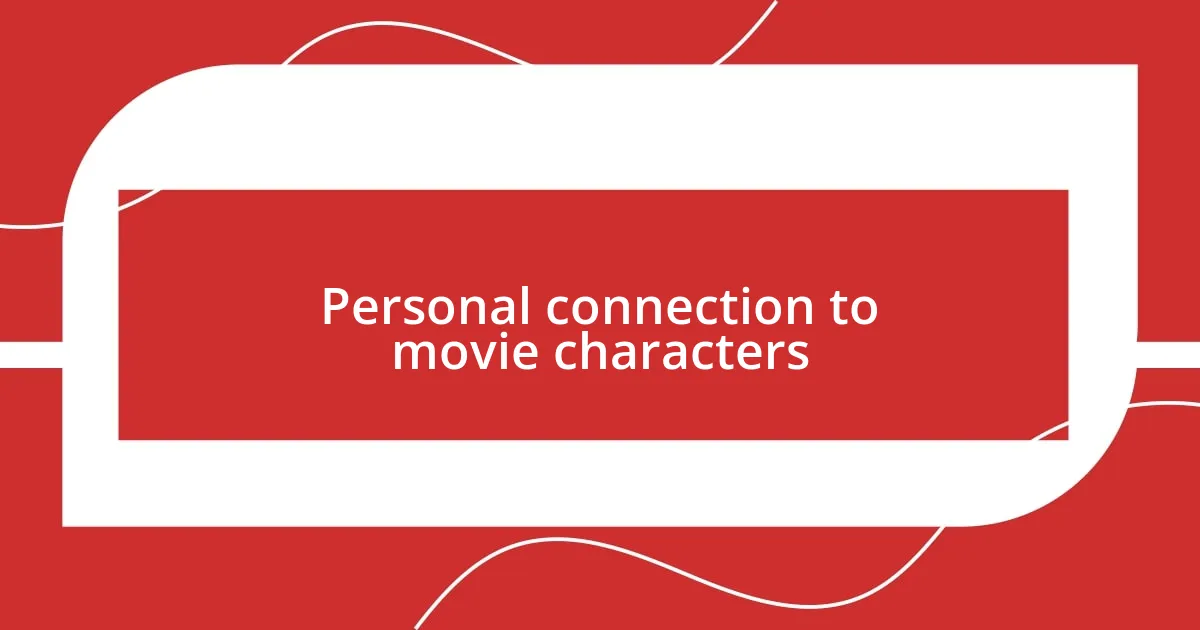
Personal connection to movie characters
When I immerse myself in a film, it’s often the characters’ journeys that resonate with me. The moment I recognized this was while watching Life of Pi. Pi’s struggle to survive amidst intense adversity mirrored my own challenges during a difficult phase in my life. His resilience sparked a fire within me, reminding me that we all have our battles to fight, and sometimes we must face them alone, yet we find strength in our vulnerability.
There are times when a character feels like an extension of ourselves. Watching Little Miss Sunshine, I connected deeply with Olive’s innocent optimism juxtaposed against her family’s dysfunction. Her unapologetic pursuit of happiness reminded me of my own childhood aspirations, which seemed unachievable amid life’s messy realities. It struck me how cinema captures those fleeting moments, urging us to embrace our true selves and imperfections.
Film characters often teach profound lessons through their experiences, igniting a sense of empathy that lingers long after the credits roll. I vividly recall the moment in The Fault in Our Stars when Hazel Grace opens up about her struggles with cancer. Her vulnerability touched me directly, providing a perspective on love and mortality I hadn’t fully grasped. It made me rethink how I cherish my relationships, elevating fictional characters to real-life mentors who guide us through empathy and understanding.
| Movie | Character Connection |
|---|---|
| Life of Pi | Resilience amidst adversity reflects personal struggles. |
| Little Miss Sunshine | Olive’s optimism mirrors childhood aspirations. |
| The Fault in Our Stars | Hazel’s vulnerability teaches about love and mortality. |
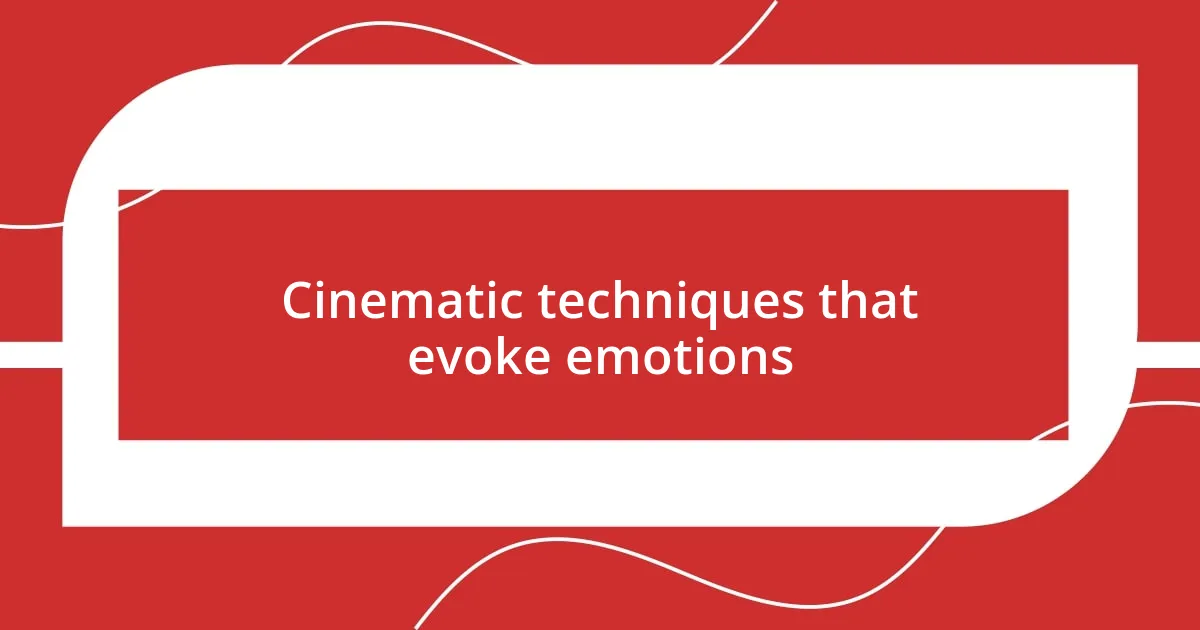
Cinematic techniques that evoke emotions
Cinematic techniques play a crucial role in kindling our emotional responses. For instance, the use of close-up shots often enhances intimacy, allowing us to feel a character’s pain or joy as if it’s our own. I remember a pivotal moment in Atonement, where Briony’s tear-filled eyes captured years of regret. That single frame made me question my own experiences with forgiveness and understanding, pushing me to reflect on times I’ve sought absolution.
Music is another powerful tool that filmmakers leverage to evoke emotions. A poignant score can turn a simple scene into a heart-wrenching moment. I felt this deeply while watching Schindler’s List. The haunting violin solo echoed in my mind long after the credits rolled, encapsulating the profound sorrow and resilience witnessed throughout the film. How often does a melody remind you of a special moment in your life? For me, that score became a bridge connecting the cinematic tragedy to my own feelings of loss and hope.
Lighting and color also have a significant impact on the emotional tone of a film. Warm hues can create a comforting atmosphere, while stark contrasts might evoke tension and fear. Watching Her, the soft pastels and intimate lighting enveloped me in a sense of longing and reflection. It prompted me to ponder the complexities of love and loneliness in our digital age. Have you ever found yourself lost in a film’s aesthetic? I certainly have, and those visuals remain etched in my memory, guiding my understanding of the emotions portrayed.
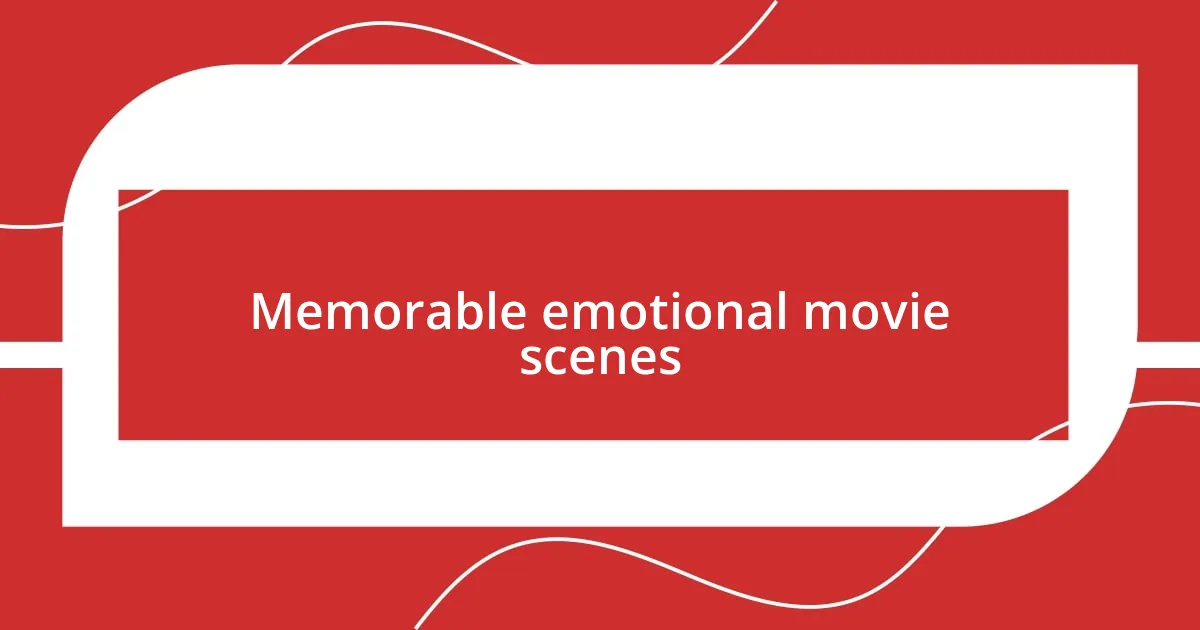
Memorable emotional movie scenes
There are moments in film that feel almost sacred, leaving an imprint on our hearts. Watching The Pursuit of Happyness, I was moved by Chris Gardner’s relentless determination and the warmth shared between him and his son. That scene where they hug amidst their struggles kindled a realization in me: no matter our circumstances, love often becomes our greatest guiding light. Have you ever felt a similar connection, where a moment on screen mirrors a feeling in your own life?
Another scene that stays with me is from *Forrest Gump*, when Forrest reunites with Jenny at the end of the film. The depth of their love and the pain of their separate journeys engulfed me with emotions I didn’t expect. It was a poignant reminder that life doesn’t always go according to plan, yet the bonds we forge can be profound. I think about how moments of vulnerability can open doors to deeper connections in our own relationships. Have you ever had a reunion that left your heart racing?
Then there’s the moment in *Up* that hits like a ton of bricks—the montage of Carl and Ellie’s life together. I can almost feel the lump in my throat resurfacing whenever I reflect on it. That sequence communicates a lifetime of joy and heartache in mere minutes. It jolted me into realizing how important it is to cherish every fleeting moment with loved ones. Isn’t it fascinating how a simple animated sequence can evoke such raw emotions, prompting us to consider what truly matters in our lives?
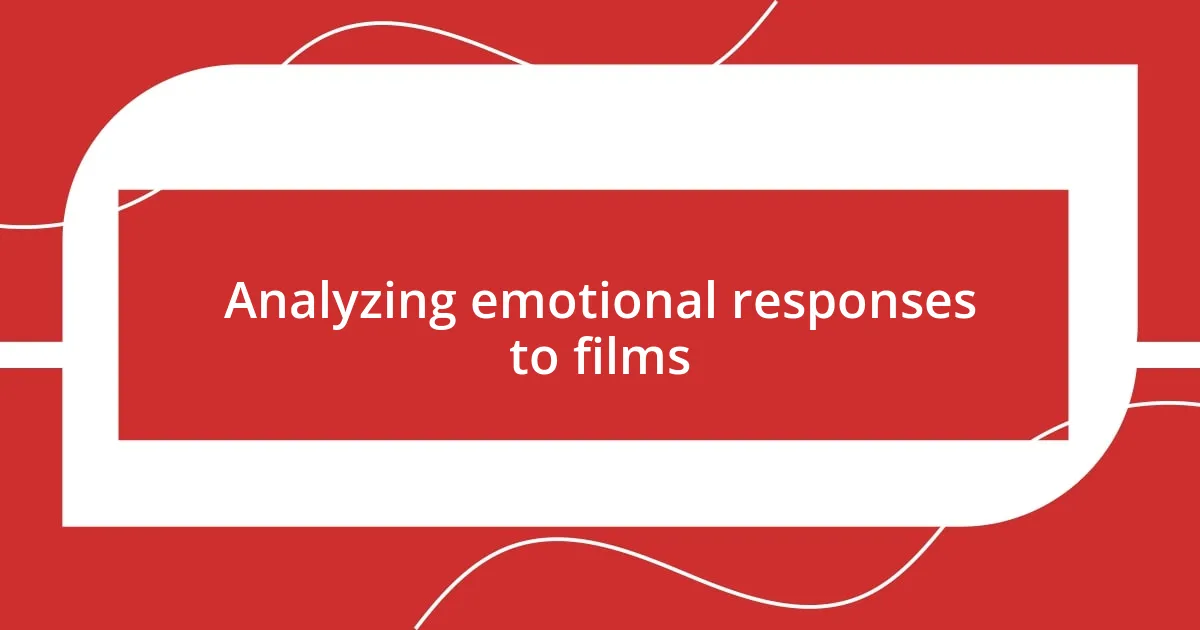
Analyzing emotional responses to films
Emotional responses to films can often stem from our personal experiences and how they resonate with the characters on screen. For example, while watching The Fault in Our Stars, I found myself reflecting on my own journey with grief and loss. When Hazel reads her eulogy for Augustus, it hit me with the weight of my past experiences—reminding me of relationships I cherished and ultimately lost. Have you ever felt that a character’s pain mirrored your own, making you confront emotions you thought you’d set aside?
The power of storytelling paired with visuals allows audiences to experience a spectrum of emotions, often unexpectedly. I recall how Life of Pi made me contemplate not just survival, but the essence of hope against all odds. When Pi struggles against despair while stranded at sea, I felt a wave of empathy wash over me. Life can sometimes feel like an endless ocean, and that scene challenged me to think: What do we cling to when all seems lost?
I believe that the emotional journey a film takes us on can deeply influence our understanding of ourselves and our relationships. After seeing Marriage Story, I was left pondering the complexities of love and heartbreak. The raw honesty of their struggles spoke volumes about vulnerability, making me reflect on my own connections. How often do we shy away from discussing difficult emotions? That film taught me that confronting these moments can lead to deeper empathy and insight—both in films and in life.
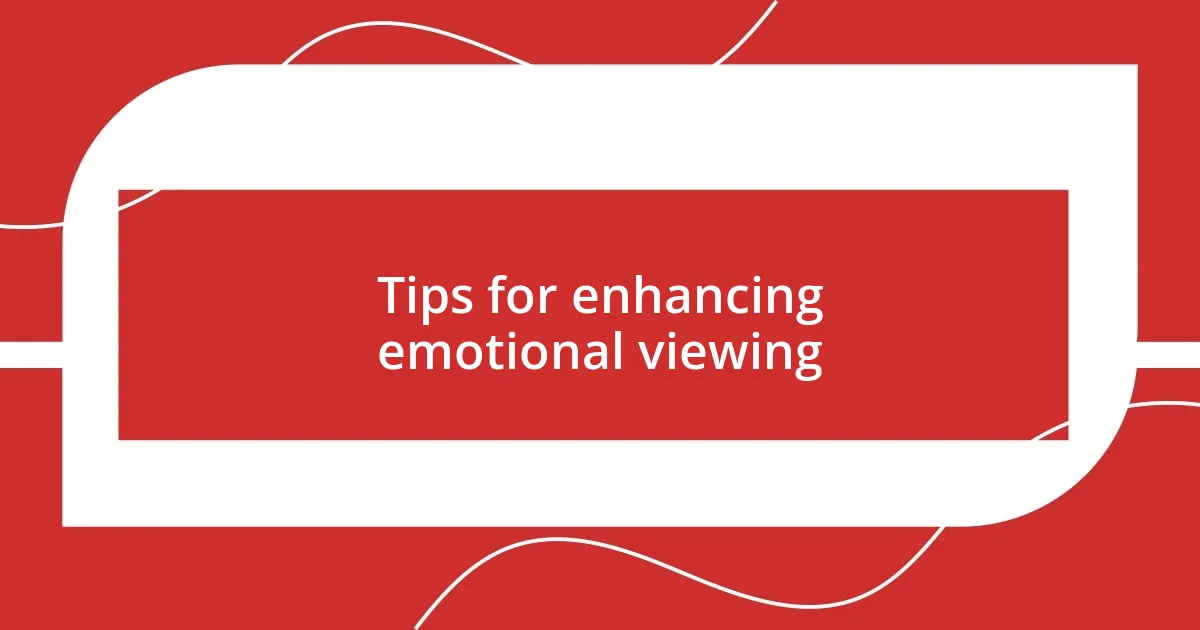
Tips for enhancing emotional viewing
When it comes to enhancing emotional viewing, creating the right atmosphere can significantly influence your experience. I often dim the lights and eliminate distractions, which allows me to immerse myself completely in the film’s world. Have you ever noticed how much a cozy environment can heighten your emotional response? It’s like wrapping yourself in a warm blanket while diving into a story; it just feels right.
Connecting with the characters is another crucial tip for a more profound emotional experience. I remember watching A Star Is Born and feeling an overwhelming connection to the characters’ struggles with fame and self-doubt. By placing myself in their shoes, I could almost taste their triumphs and heartaches. Think about it: how often do you fully invest in a character’s journey? This level of empathy can turn a good film into a heart-wrenching spectacle.
Finally, I find that discussing the film with friends afterwards adds layers to my emotional experience. After watching The Green Mile, a friend and I unpacked the moral dilemmas and emotional toll of the story. Those conversations can bring out viewpoints I may not have considered and spark deeper reflections on my own emotions. Have you ever found clarity or new insights by sharing your thoughts with someone else? It really is a powerful way to extend the emotional impact of what you’ve just seen.
